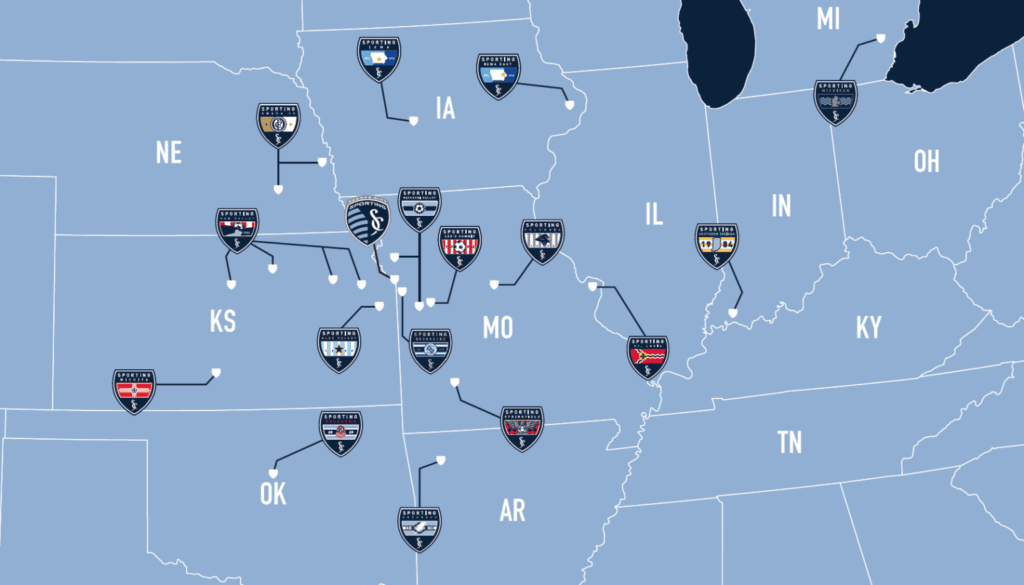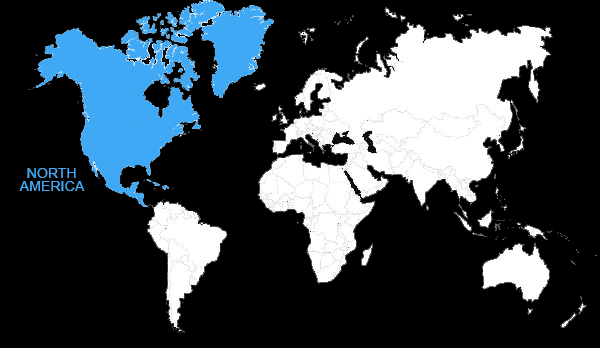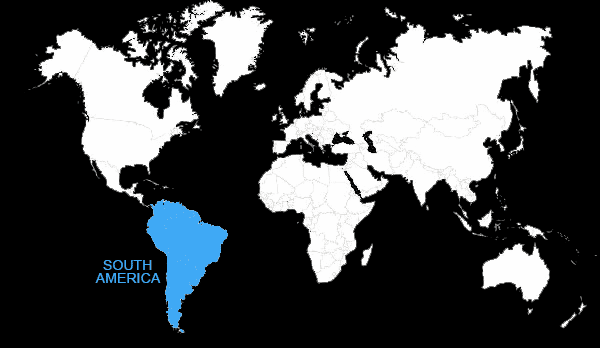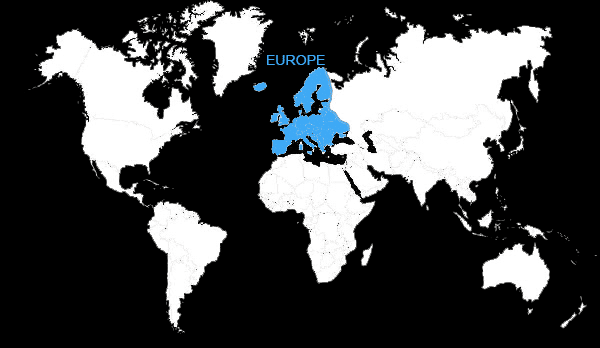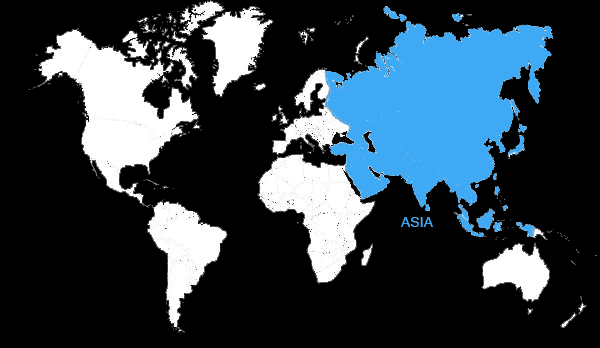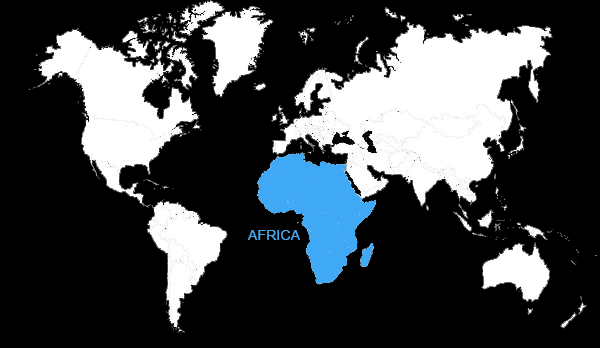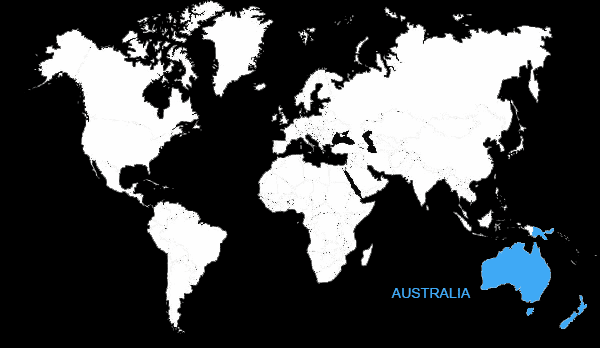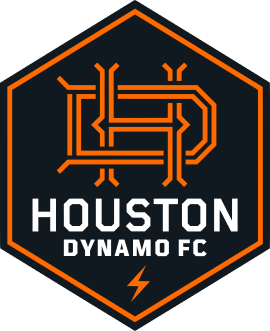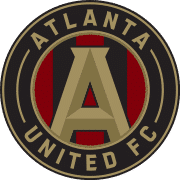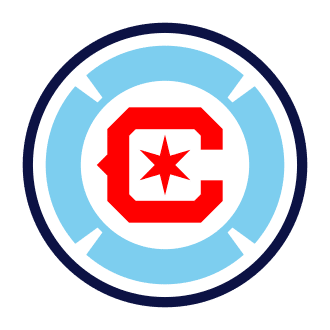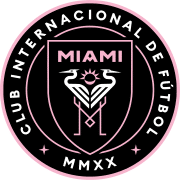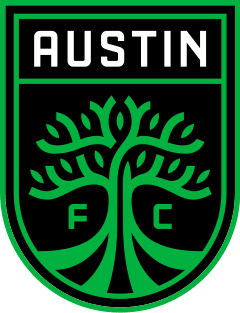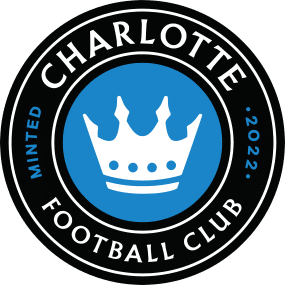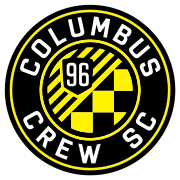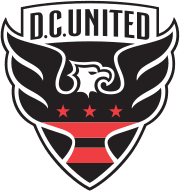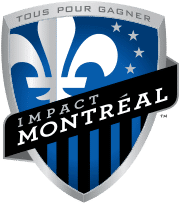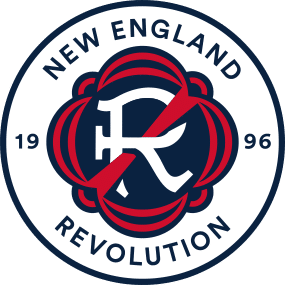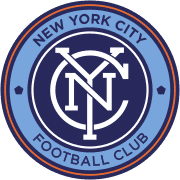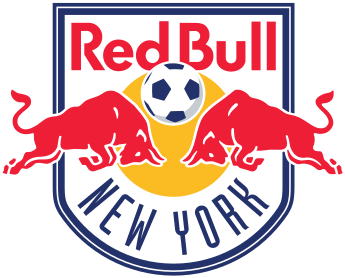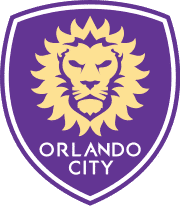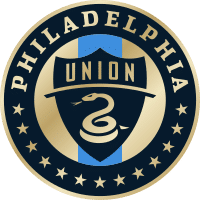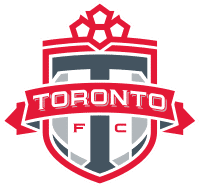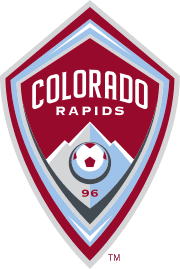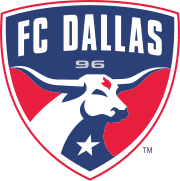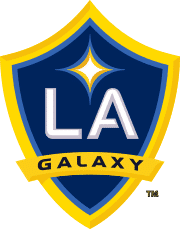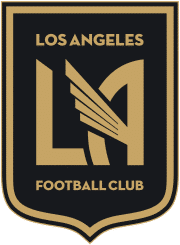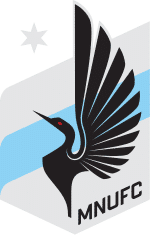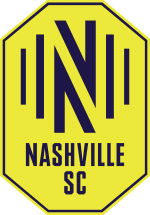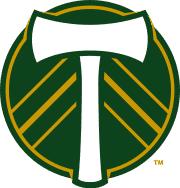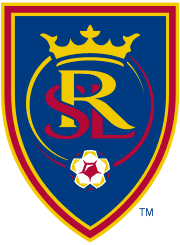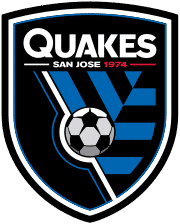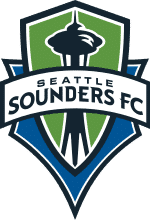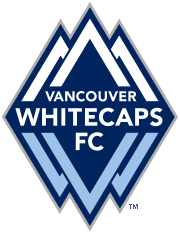Sporting Kansas City Tryouts & Club Guide: History, Stadium, Players, and More!

Welcome!
Discover the world of soccer with fcscout.com, your go-to scout for club tryout information, club guides, player profiles, in-depth product reviews, and more. We’re dedicated to exploring and revealing the best in each domain, empowering you with knowledge to make informed choices.
Thank you for being here!
Hi, I’m Carlos! A coach, sports enthusiast, and the founder of FCScout.com.
I fell in love with the game at a very young age like many of you. I’ve been following and playing soccer for many years.
Throughout my career, I always enjoyed helping soccer players chase their dreams, which is why I started this website. I wanted to reach a larger audience outside of my local area and fcscout.com was born.
This website is a platform I will be using to update club pages on any tryouts, stadiums, players, tech, and more from clubs around the world. I also create free recruitment profiles for players looking to have that extra competitive edge when reaching out to clubs.
That’s it. That’s my pitch for you to stick around (or browse the site as you please).
This is already too much text for a “see more” drop-down button thing. If you want to reach out to me, head on over to my contact page 🙂
Sporting Kansas City, often shortened to Sporting KC, is an American professional soccer club based in the Kansas City metropolitan area. The club competes as a member of the Western Conference in Major League Soccer (MLS), having returned in 2015 after spending ten seasons in the Eastern Conference.
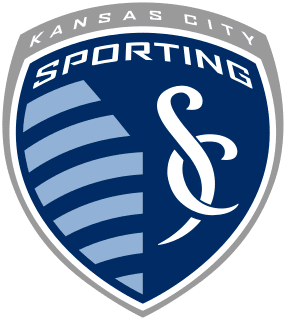
Sporting Kansas City Youth Development System
Sporting Kansas City Academy
The Sporting Kansas City Academy has experienced a highly successful history since its formation in 2007. The program currently consists of six teams at the U-19, U-17, U-15, U-14, U-13 and U-12 levels

Sporting KC Academy players have the opportunity to eventually join the Sporting Kansas City first team without going through the MLS draft process. In late 2006, Major League Soccer announced an initiative that created a “Homegrown Protected List” for each team. Clubs now have the opportunity to retain the professional rights of players developed within its youth academy. Sporting KC immediately began investing significant resources in the identification and development of young players from the region. Sporting KC along with all other MLS Academies, is a participant in the FIFA training compensation and solidarity payment system, as codified in FIFA’s Regulations on the Status and Transfer of Players
The Sporting KC Academy has produced 13 Homegrown Players who have been signed to the Sporting Kansas City senior team. Goalkeeper Jon Kempin signed in August 2010, defender Kevin Ellis signed in February 2011, defender Erik Palmer-Brown signed in July 2013, forward Daniel Salloi signed in January 2016, and in 2017 forward Gianluca Busio and defender Jaylin Lindsey signed first team contracts. Midfielder Wan Kuzain Wan Kamal and forward Tyler Freeman signed 2018 before Cameron Duke and Felipe Hernandez signed in 2019. In 2020, Sporting signed forward Wilson Harris.
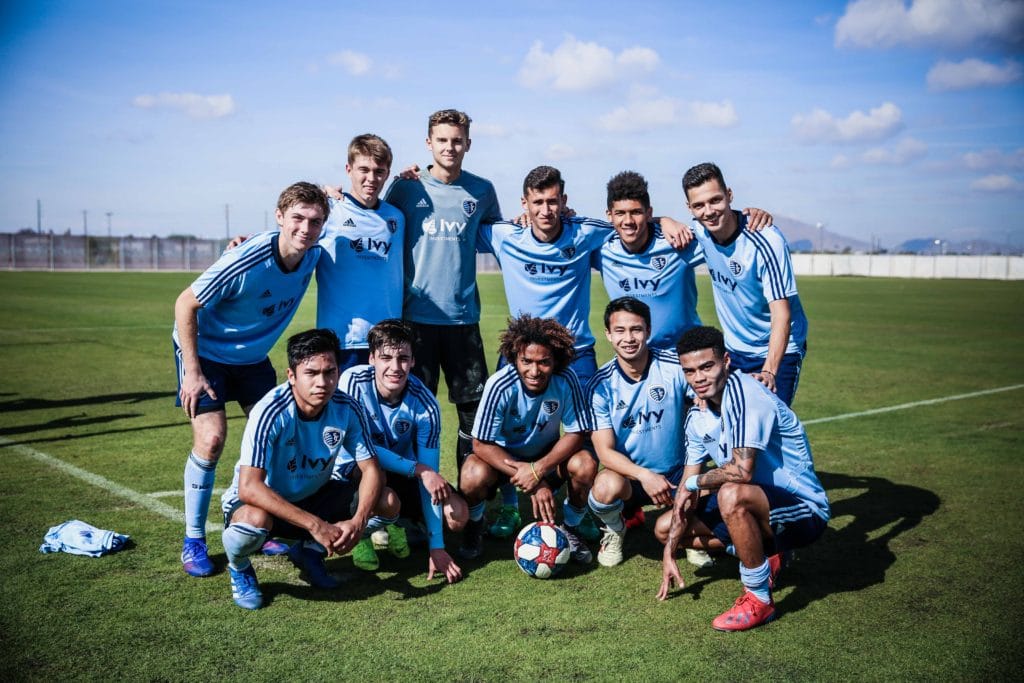
The Academy program is fully funded, meaning the Academy covers all costs for gear and traveling expenses. All home games are played at the team’s Children’s Mercy Training Center at Swope Soccer Village. Sporting Kansas City and the Spoting KC Academy also offer youth camps throughout the calendar year.
The U-19, U-17 and U-15 teams play in the U.S. Soccer Development Academy. U.S. Soccer created the Development Academy in 2007 to improve the everyday environment for the elite youth player. The Development Academy is a partnership between U.S. Soccer and the top youth clubs around the country to provide the best youth players in the U.S. with an everyday environment designed to produce the next generation of U.S. National Team players. The Academy also connects National Team coaches directly with the Academy clubs to develop and identify players and coaches for future youth national teams. Multiple Sporting KC Academy teams have advanced to the Development Academy Playoffs, with the U-18s in 2016 and the U-16s in 2007 advancing to the quarterfinal stage. Visit the U.S. Soccer Development Academy website for more information.
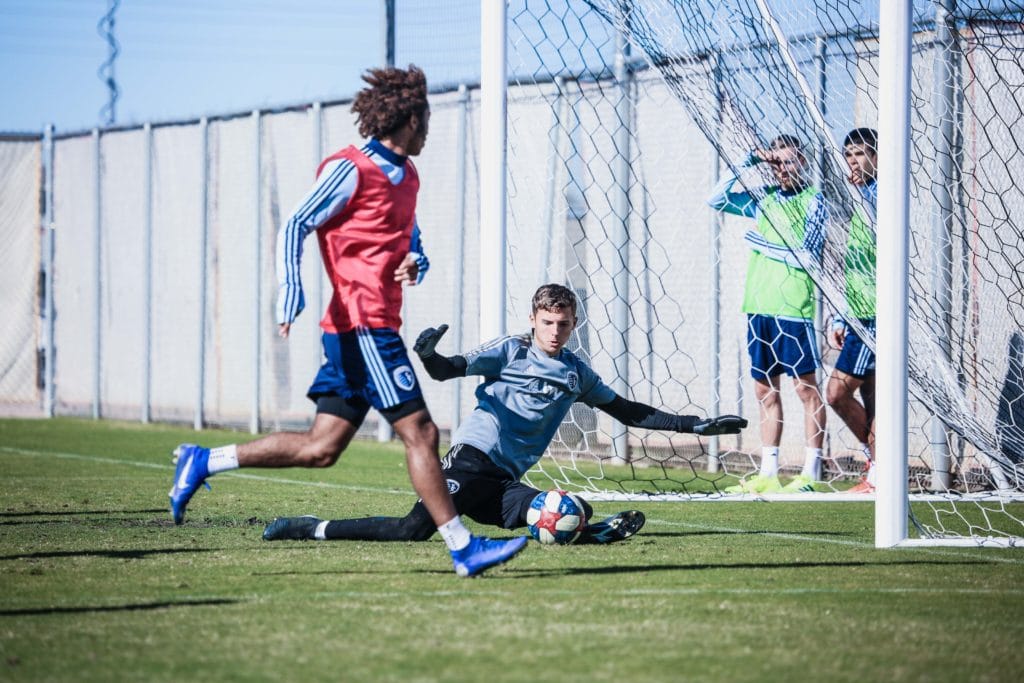
The U-14, U-13 and U-12 teams also play in various U.S. Youth Soccer competitions such as the National League, Midwest Regional League and Heartland League. These competitions bring together the top teams, under the USYS umbrella, from the nation, region, local area and regional MLS affiliate clubs. Visit the National League, MRL and Heartland websites for more information.
In 2016, the Sporting KC Academy launched the Centers of Excellence for the U-11 and U-9 age groups. The Sporting KC COE is a supplemental training program with the aim to strengthen player’s skill foundations and identifying players for Sporting KC Academy teams.
If you have any questions, please email [email protected].
Sporting Kansas City Player Recruitment
Sporting KC Academy consists of 6 six teams in age groups U12, U13, U14, U15, U17, & U19. SKC Academy trains and competes at Children’s Mercy Training Facility at Swope Soccer Village.
We are currently inviting players on a trial basis as identified through our scouting network. We also currently only hold tryouts for ages U12-U14 each year in May. If you are interested in being considered for a trial, complete the form below. Once your information is submitted it will be reviewed by the Sporting KC Talent Identification Staff for consideration. Please note that due to the volume of interest you will only be contacted if an invitation to trial is offered.
*If you do not provide video, it is highly unlikely that you will be contacted.
To complete a tryout form, please click here.
Sporting Kansas City Frequently Asked Questions
Tryouts for U12, U13, U14 are held mid to late May. Currently we do not hold tryouts for the U15, U17 and U19 teams. If you are interested in SKC Academy tryouts, trial, or wish to be contacted when tryout information is released, please email [email protected].
Playing on a SKC Academy team requires a significant commitment. The U19, U17 & U15 teams train four to five times per week with one or two games on most weekends. The U12, U13 & U14 teams train three to four times per week with one to two games on most weekends.
SKC Academy teams train and play all games at Children’s Mercy Training Center at Swope Soccer Village.
Playing on a SKC Academy team requires a significant commitment. SKC Academy teams travel between 10-15 times per year with mostly regional travel (St. Louis, Des Moines, Tulsa, Denver, Texas, Ohio, etc.) and some national travel (Florida, North Carolina, Las Vegas, etc.). Please visit each team’s webpage for more specific information on their individual schedules this year.
No, SKC Academy players cannot play on their high school teams. The USSF Development Academy is a year-round, highly competitive league that not only conflicts with but also disallows its players to participate in high school sports.
Players on SKC Academy teams can play other sports only if 1) they play on a U12 or U13 team, 2) they get prior permission from their Coach and Academy Director, and 3) it does not interfere with SKC Academy trainings or games. Players who play other sports must do so knowing that playing for the SKC Academy is a significant commitment and that the SKC Academy will come first over other extracurricular priorities. U19, U17, and U15 SKC Academy players are not allowed to play other sports.
A Part-Time Player (PT) is a player who is not a full-time rostered player but is allowed to train full time and be called into the game day roster for select league or tournament games. A PT is allowed to play for an affiliate team (see the Sporting Club Network Academy Affiliate webpage for more information) to continue their development and get an appropriate amount of competitive games. In the U.S. Soccer Development Academy, PTs are allowed to play in twelve league games. Lastly, PTs may become full-time rostered players at any time during the season.
The SKC Academy teams play in various leagues depending on their age. U19, U17 & U15 teams play in the U.S. Soccer Development Academy league. Our U14 team plays in the USYS Midwest Conference. U13 & U12 teams play in the Heartland Soccer Association League. All teams participate in the Heartland Futsal League during the winter months.
Please visit the U.S. Soccer Development Academy webpage for more information.
Please visit the Academy Staff webpage for more information.
You do not have to be a USA citizen to play for a SKC Academy team. However, non-USA citizens must have their appropriate Visa completed and approved to be eligible to play on a SKC Academy team. International players must also be eligible for an ITC transfer if under 18 years old. Please visit US Soccer’s ITC Eligibility webpage for more information.
All SKC Academy players must wear adidas footwear while representing Sporting Kansas City.
A majority of our players live within 45 minutes of our training facility, however there are also players who live in a 3-4 hour radius that commit to driving the distance each day to training.
The SKC Academy is a strong opponent of pay to play models and does its best to reduce costs for players to play at a high level of soccer. While all SKC Academy players are required to pay a membership fee (which includes a season ticket to SKC games), the U19, U17 & U15 SKC Academy teams are fully funded and do not have to pay costs associated to coaching, facilities, travel, equipment, leagues, tournaments, and referee fees, etc. The U13 & U12 SKC Academy teams are partially funded as the players only pay for costs associated with travel (transportation, housing, and meals) related to SKC Academy trips.
Sporting Kansas City Academy Affiliates
WHAT IS AN ACADEMY AFFILIATE?
In addition to being members of the Sporting Club Network, select youth soccer clubs may also be eligible to be affiliates for the Sporting Kansas City Academy Affiliate program. The clubs that rebrand as Academy Affiliates strive towards a common goal of growing the game, while providing the best possible resources, education, and developmental opportunities to all members both on and off the field.
For a complete list of affiliate clubs, please click here.
EXPLORE MORE CLUBS!
Explore more professional clubs by continent.
Sporting Kansas City Overview
American professional soccer club Sporting Kansas City, or simply Sporting KC, is an American club based in the city of Kansas City, Kansas. City Hall in Downtown Kansas City, Missouri, houses the team’s administrative headquarters and the team clubhouse and practice facilities near Children’s Mercy Park. After 10 seasons in the Eastern Conference, the club returned to the Western Conference in 2015 and now competes in the MLS as a member of the Western Conference.
Sporting KC was founded in 1996 as the Kansas City Wiz, a charter team in the league at the time. Lamar Hunt was the driving force behind the formation of the group in 1995. Kansas City Chiefs are the only major professional sports league franchise to play home games in the state since migrating across the state line. The Kansas City Wizards were the team’s name for the bulk of its existence.
The squad renamed itself in November 2010 to coincide with its move to Children’s Mercy Park, their new home stadium. There have been four U.S. Open Cup victories, two MLS Cup victories (1999, 2013), and one Supporters’ Shield victory (1999). Second-tier USL Championship side Sporting Kansas City II is also a part of the club.
Sporting Kansas City History
The early years (1996–1999)
Lamar Hunt, the man responsible for the American Football League, the Kansas City Chiefs, the United Soccer Association, and Major League Soccer, founded the MLS team in Kansas City. The Kansas City Wiz demolished the Colorado Rapids 3–0 in their inaugural game at Arrowhead Stadium on April 13, 1996. Coached by Ron Newman, the Wiz includes Preki, Mo Johnston, and Digital Takawira. First-ever MLS playoffs were held in 1996, when the team placed third in the Western Conference (fifth overall) with a 17–15 record. It took the Wiz three games to defeat Dallas Burn in the 1996 conference semi-finals before they lost to LA Galaxy in the conference final.
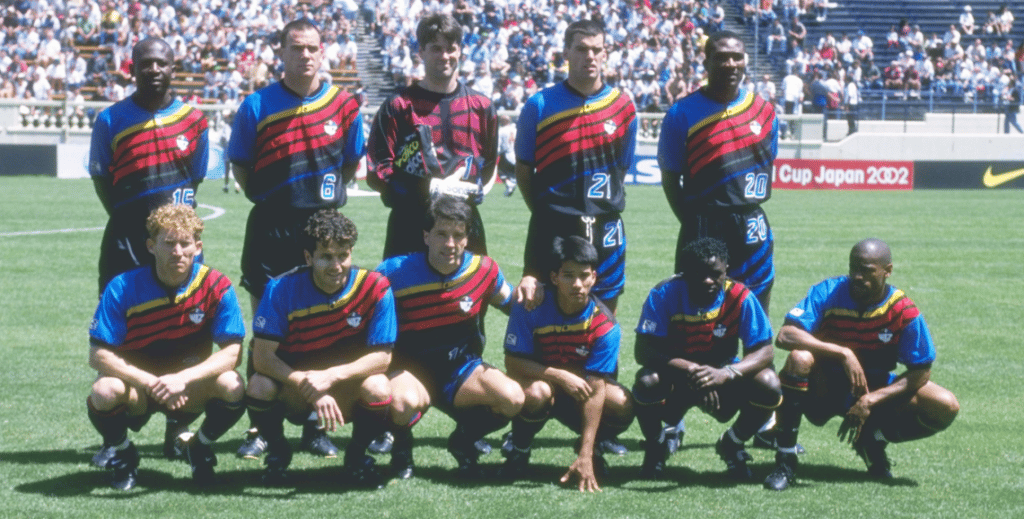
After a lawsuit by electronics shop The Wiz, the Wiz changed their name to the “Wizards” during the 1996 season. It was enough to win the Western Conference regular season championship in the 1997 MLS season with a record of 21–11. It was in 1997 that Preki was voted MLS MVP. The Wizards were knocked out in the first round of the playoffs by the bottom-seeded Colorado Rapids. In 1998 and 1999, the Wizards had losing records and finished last in the Western Conference. Ron Newman was sacked by the Wizards early in the 1999 season, and Bob Gansler was brought in to replace him. A record of 8–24 put the Wizards in last place in the Western Conference for the second straight year.
Supporters’ Shield and MLS Cup (2000)
The Wizards started the 2000 season with a 12-game winning run under Bob Gansler, their first full season in that role. At 681 minutes and 16 shutouts, goalkeeper Tony Meola set a new MLS record for shutouts and was named MLS Goalkeeper of the Year and MLS MVP. Defender of the Year for the 2000 MLS season was Peter Vermes. In 2000, the Wizards had the best regular-season record in the league, going 16-7-9, and they took home the MLS Supporters’ Shield that year.
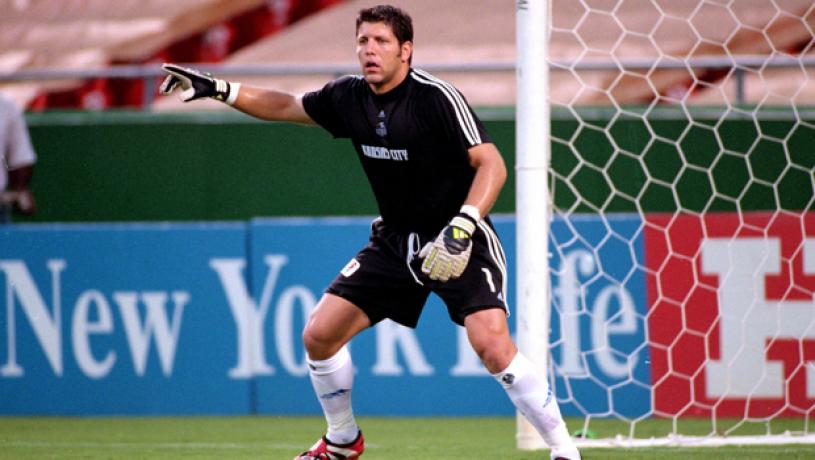
Miklos Molnar scored a penalty kick in game three of the 2000 playoffs to put the Wizards into a tiebreaker against the LA Galaxy, where he scored again to send the Wizards to their first MLS Cup. The Wizards, the league’s best defense, played the league’s best offensive, the Chicago Fire, at RFK Stadium in Washington, D.C. Miklos Molnar’s goal in the 11th minute gave the Wizards the lead. After the Wizards’ defense held out the Fire’s ten shots on goal, the team won its first MLS Cup Championship. The MLS Cup MVP award went to Tony Meola in 2000.
Post-championship struggles (2001–2002)
Reigning NBA champions New York Knicks were 8th seed in the playoffs in 2001 after losing Preki against Miami Fusion with a record of 11-13-3. First-round loss against Preki and the Miami Fusion terminated the Wizards run as NBA champions with a score of 6 points to 3. Preki returned to the Wizards in 2002, but the team still finished last in the Western Conference. They qualified for the postseason with a 9–10–9 record. The Wizards made the playoffs when the MetroStars and D.C. United, the final two clubs in the East, failed to qualify. A defeat by the eventual winners, the L.A. Galaxy, would take place in the first round of playoffs.
More success (2003–2004)
In 2003, the Wizards had a record of 11–10–9, which put them in the top half of the Western Conference. The Wizards defeated the Colorado Rapids 3-1 in the first round of the playoffs in the aggregate goal series. There would be one more match against the San Jose Earthquakes before the 2003 MLS Cup was decided. Landon Donovan’s 117th-minute overtime goal pushed the Earthquakes to the 2003 MLS Cup, while the Wizards were knocked out of the playoffs. 2004 was a rough year for the Wizards, but they turned things around in the summer. Final record: 14–9–9; regular season championship: Washington Wizards.
Six-game winning run to end season; regular season championship: Washington Wizards. Due to an injury to Tony Meola, the starting goalkeeper had to be replaced by Bo Oshoniyi. The Wizards fell to the San Jose Earthquakes 2–0 in the opening round of the 2004 playoffs. When it came time to play for a conference title in game two, the Wizards had already scored twice before Jack Jewsbury’s injury-time goal put KC up for good.
The Wizards beat the Los Angeles Galaxy in the MLS Conference Finals to advance to their second MLS Cup. The Wizards faced D.C. United in the 2004 MLS Cup final at the Home Depot Center in Carson, Calif. D.C. United responded with three goals in the first half after the Wizards’ Jose Burciaga put them ahead in the sixth minute. Josh Wolff’s penalty kick in the 58th minute gave KC hope, but they went on to lose the 2004 MLS Cup final 3–2.
Move to the East (2005–2010)
The Wizards relocated to the Eastern Conference in 2005 as a result of MLS expansion. The Wizards finished the 2005 season with a record of 11–9–12, despite the efforts of 2005 MLS Defender of the Year Jimmy Conrad. Preki, the team’s longtime captain, announced his retirement following the season. Losing to New York’s Red Bulls on final day of regular season ended Wizards’ hopes of postseason berth in 2006 with a 10–14–8 record.
A local consortium lead by co-founders Neal Patterson and Cliff Illig of Cerner Corporation purchased the Wizards from Lamar Hunt in August 2006, with the goal of retaining the team in Kansas City. In honor of Lamar Hunt, who died in December 2006, the team dedicated its 2007 season. This season’s early success earned them four victories in the first seven weeks. Kevin Hartman, a goalkeeper with the Los Angeles Galaxy, was acquired by the team to assist in that position.
Kansas City finished fifth in the East with an 11–12–7 record despite only winning four games after the All-Star break. As a result of a playoff format change, the Wizards faced Chivas USA in the Western Conference finals. The defense and Kevin Hartman held Chivas USA scoreless after the Wizards’ Davy Arnaud goal in the first game of the series. The Wizards lost 2–0 to the Houston Dynamo in the Conference Finals.
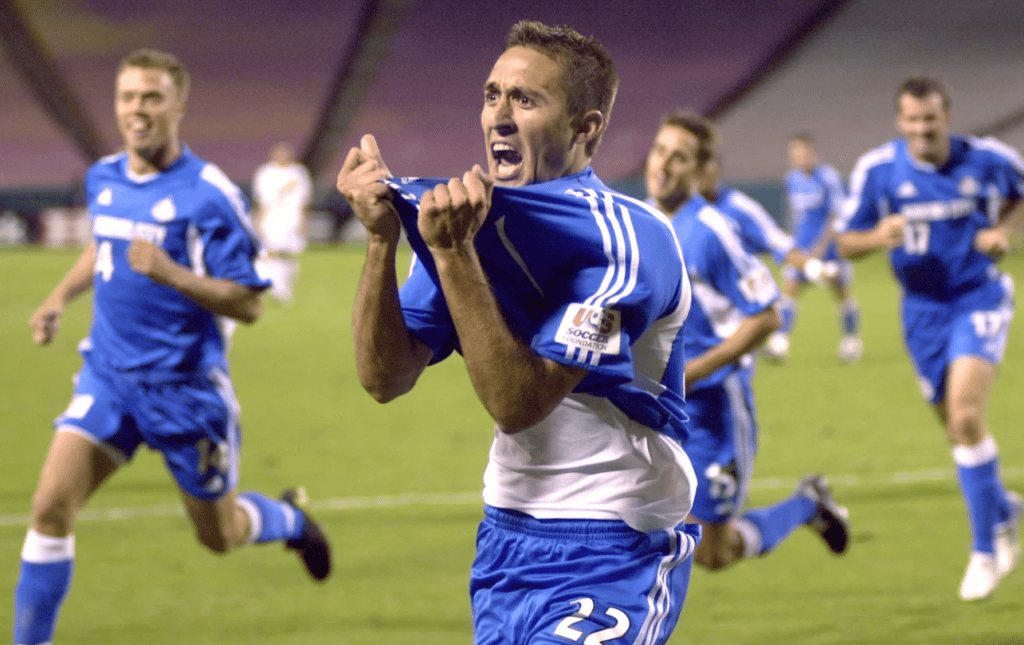
After a four-year playoff absence, the Wizards returned to the postseason in 2008, playing their home games at CommunityAmerica Ballpark in Kansas and finishing with an 11–10–9 record to finish fourth in the Eastern Conference. The Washington Wizards and Columbus Crew played to a 1–1 stalemate in Game 1 of the first round series, however the Wizards went on to lose the series 3–1 after falling to the Crew 2–0 in Game 2.
The Wizards returned to CommunityAmerica Ballpark for the 2009 campaign, but their offense sputtered. For the longest time this season, they were without a goal for 426 minutes or more. Curt Onalfo was fired as head coach of the Kansas City Chiefs in August 2009, with the team having a 5–7–6 record. For the second year in a row the Wizards finished third to bottom in the league standings with an 8–13–9 record at home. When it came to igniting the Wizards’ offensive, it was Claudio López (8 goals, 7 assists) and Josh Wolff (11 goals). Last season, the Wizards finished third in the Eastern Conference, just missing the playoffs by a single game.
A new home and a rebrand (2011–2012)
A current tendency in Major League Soccer (MLS) is for teams to adopt European-sounding names like Toronto FC, DC United, and Real Salt Lake. In Iberia, only multi-sport clubs with a history of fielding teams in several sports from various departments can use the moniker “Sporting.” The most renowned example of a club using this designation is Sporting Lisbon. The term’s use in Kansas City has been called out for being inaccurate and culturally insensitive. This year, the president of Kansas City announced plans for a new rugby and lacrosse clubs at the re-branding event. Even though a collaboration with the Kansas City Blues Rugby Club was announced since then, no lacrosse squad has yet been formed by the two organizations as part of one “Sporting Club.” When the rebranding was first announced, people were split between joy and disgust.
Sporting Kansas City became the first major-league team to play at stadiums on both sides of the state line in Kansas City, while Kansas City became the only metropolitan area in the United States other than New York City to have major professional sports teams playing in different states. Sporting Kansas City had to play their first ten games on the road in 2011 because Children’s Mercy Park was not completed in time for the start of the season. While on the road, the squad had a better record than any Eastern Conference team and finished with the most points. Sporting lost 2–0 to the Houston Dynamo in the Eastern Conference finals after defeating the Colorado Rapids 4–0 on aggregate in the Eastern Conference semi-finals. KC started the 2012 season with seven straight victories, going 335 minutes without surrendering a shot on goal, an MLS record.
The squad ended the regular season with an 18–7–9 record, good enough for first place in the East. For Sporting KC, the standouts were Graham Zusi (15 assists), Jimmy Nielsen (15 shutouts), and Matt Besler (MLS Defender of the Year), all of whom were nominated for the 2012 MLS MVP award. In the conference semifinals, the Sporting KC fell to the Houston Dynamo. A 1-0 victory over Seattle Sounders FC in the U.S. Open Cup finals qualified Kansas City for the 2013–14 CONCACAF Champions League.
MLS Cup Champions (2013)
Renewing contracts with U.S. national team players Graham Zusi and Matt Besler in 2013 was made possible thanks to newly established retention monies in Major League Soccer (MLS). In the regular season, Sporting KC had a record of 17 wins, 10 defeats, and seven tie games, good for second place in the Eastern Conference. Sporting KC advanced to the MLS Cup 2013 after beating NE Revolution and Houston Dynamo in the 2013 MLS Playoffs. Soccer City overcame Real Salt Lake in a shootout (7–6) after regular and overtime were both tied at 1-1. There has never been a colder MLS Cup game.

Return to the West (2014–present)
Sports were knocked out of the MLS Cup Playoffs by the New York Red Bulls in the East Knockout Round in 2014. When two East Coast-based teams, New York City FC and Orlando City SC, were added to the league in 2015, Sporting moved from the Eastern Conference to the Western Conference, along with Houston Dynamo. Sporting Kansas City qualified for the 2015 MLS Cup Playoffs after finishing sixth in the Western Conference that year. On penalties, the Portland Timbers knocked them out of the Western Knockout Round, 6–7.
Neal Patterson, a co-owner of Sporting Kansas City, died in July 2017 of soft tissue cancer. The team’s jerseys and Children’s Mercy Park were decorated with wordmarks in honor of their late owner. To create a new league record for most costly internal deal, the club traded Dom Dwyer to Orlando City for $1.6 million (in general and targeted allocation money plus additional incentives) later that month. New York Red Bulls were knocked out of the 2017 Lamar Hunt Open Cup final by the team by a score of 2–1.
Sporting claimed their fourth Open Cup crown and third in the last six years with the victory. Peter Vermes’ record in cup finals and championship games with the club now stands at 4–0. Kansas City became became the second team in Open Cup history to win four finals in the same amount of tournament appearances.
Colors and Badge
With “lead” as a tertiary hue, Sporting Kansas City’s official colors are sporting blue and dark indigo. “Sporting blue” stripes on the “Kansas” side and an interlocking “SC” on the “Missouri” side make up the primary logo, which is made up of a teardrop-shaped shield. When the Kansas City Wizards were known as “Kansas City Wizards,” the team’s emblem was shaped like a shield. Stateline represents Sporting’s supporters in both the Kansas and Missouri parts of the Kansas City metro. State lines are marked by eleven alternating horizontal stripes that represent the amount of players a team has. the Winged Victory of Samothrace – a Greek statue suggesting to strength and mobility – and the Spanish architecture of Kansas City’s Country Club Plaza all inspired the “SC” (for Sporting Club). In 2013, Ivy Funds became the first sponsor of the club’s uniforms, and a new home and away jersey design, as well as an alternate argyle design, were introduced.
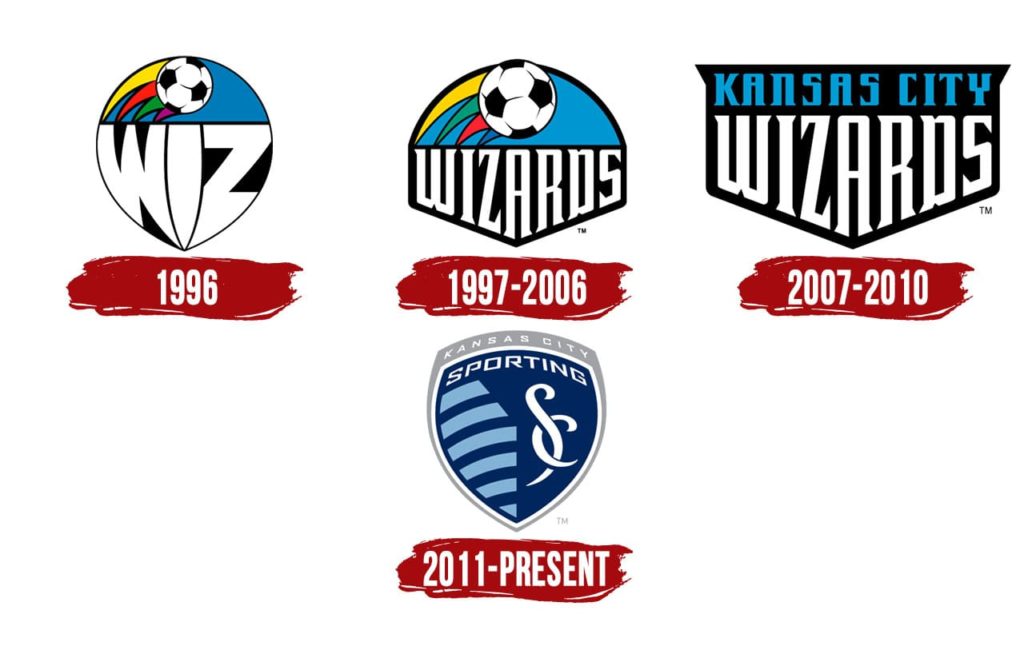
Stadiums
The Wizards played home games at Arrowhead Stadium, a football stadium in Kansas City, Missouri, from 1996 to 2007. For the first ten years of play, the Wizards tarped off the west end of Arrowhead Stadium, limiting the number of fans who could get close to the field. Seating was available all the way around the pitch in 2006, but only along the sidelines in 2007. The Wizards continued to use Arrowhead for special events after their final season there in 2007. As a result of the anticipated high turnout for David Beckham’s Galaxy debut in 2008, the team hosted the Los Angeles Galaxy during a regular season home game. The Wizards beat Manchester United 2–1 in this location in a friendly matchup in 2010 as well.
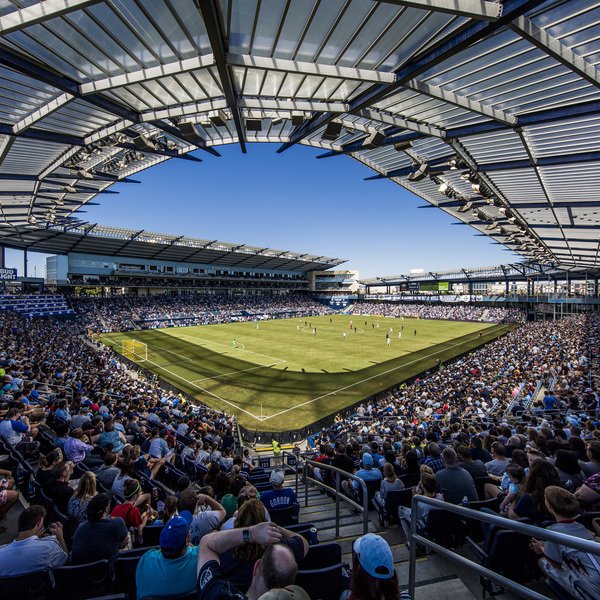
The Wizards signed a deal with the Kansas City T-Bones to use CommunityAmerica Ballpark for the 2008 and 2009 seasons. Later, the agreement was extended to encompass the year 2010 as well. The Wizards financed the construction of a new section of bleachers at the stadium, which is located over the state line in Kansas City, Kansas. As a result of this transfer, the Wizards became the third MLS team to share a stadium with a baseball franchise in the league’s history.
Before the Washington Nationals moved into Nationals Park, D.C. United shared RFK Stadium with the Major League Baseball team. During the 2008 and 2009 seasons, the San Jose Earthquakes played some of their home games at Oakland–Alameda County Coliseum in Oakland, California, the home of the Oakland A’s and the Oakland Raiders. As part of a multi-use development, the Wizards originally planned to return to Kansas City and build a new stadium there, tentatively dubbed Trails Stadium. The Trails Stadium project was finally shelved in the wake of the 2008–09 financial crisis, even though it had gained all of the necessary approvals and was ready for demolition.
Children’s Mercy Park
Stadium plans for the Kansas City Royals swiftly settled on a new location in the Village West neighborhood, which is located just blocks from the CommunityAmerica Ballpark and the Kansas Speedway. As early as September of 2009, the developer formally requested authorization from Wyandotte County and the State of Kansas to use tax increment financing income from the Village West area to help finance the soccer complex. President Robb Heineman gave an update on the stadium issue on December 17th, saying that it was close to being finalized and that just the final agreements needed to be signed.
Wyandotte County authorized the bonds for the stadium on January 19, 2010, and on January 20 the groundbreaking ceremony was held, with Wizards CEO Robb Heineman using heavy machinery to move dirt at the building site. After rebranding as Sporting Kansas City, the Wizards erected Livestrong Sporting Park in Kansas City, Missouri. First of its kind in the United States, it cost $200 million to build the complex. Until Lance Armstrong’s doping incident, the Livestrong Foundation controlled the rights to the name of Sporting Kansas City’s stadium; after Armstrong’s demise, Sporting Park was renamed. It was renamed Children’s Mercy Park on November 19, 2015, in a 10-year arrangement with Children’s Mercy Hospital, which renamed the stadium.
Club Culture
Supporters
With almost 100 consecutive sellouts as of August 2017, Sporting consistently draws sold-out crowds. With 14,000 season ticket holders and 3,000 people on the waiting list, Sporting has a full house. Sporting KC’s season-ticket holders are an average of 29.7 years old on average. It is through Sporting Innovations, a company that was spun out from the team and focuses on fan involvement, that Sporting KC collaborates with this consulting firm.
A number of college football administrators have visited Sporting Kansas City to learn from the success of the team’s fan engagement strategy. At Children’s Mercy Park, “The Cauldron” is the name of the major group of Sporting Kansas City fans cheering from the Members’ Stand. Due to the team’s former name, the Wizards, the moniker “Wizards” was derived from the enormous metal pots used to cook potions. Sporting’s fan base has grown tremendously since their rebranding in 2010. Several fan clubs have contributed to the Cauldron’s culture and atmosphere.
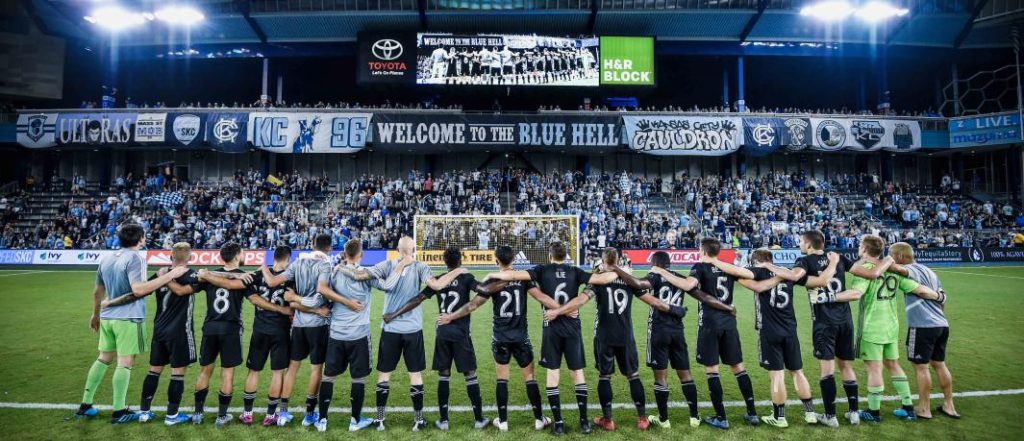
Along with The Cauldron, there are now a number of other bands playing in the north stands, including La Barra KC, Mass Street Mob, King City Yardbirds, Trenches, Omaha Boys, Northland Noise, Ladies of SKC, Fountain City Ultras, and K.C. Futbol Misfits… From the south end of Children’s Mercy Park, The Wedge and Ad Astra SKC, as well as the American Outlaws – Kansas City Chapter, form the umbrella group known as the South Stand SC.
